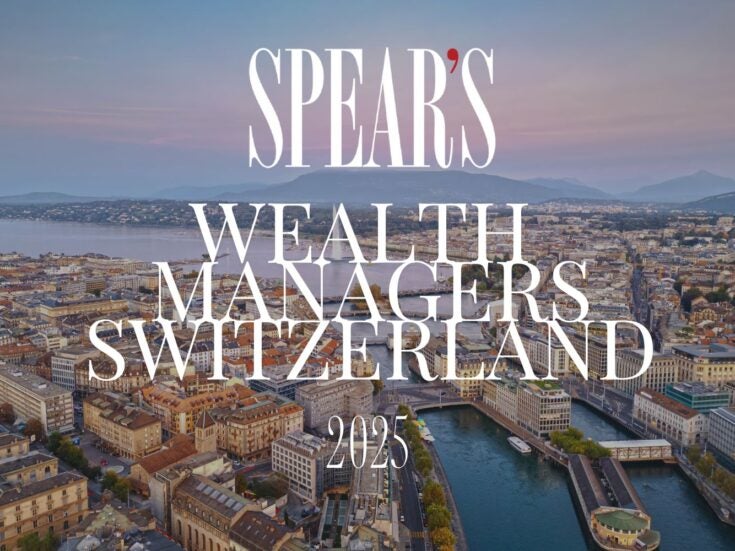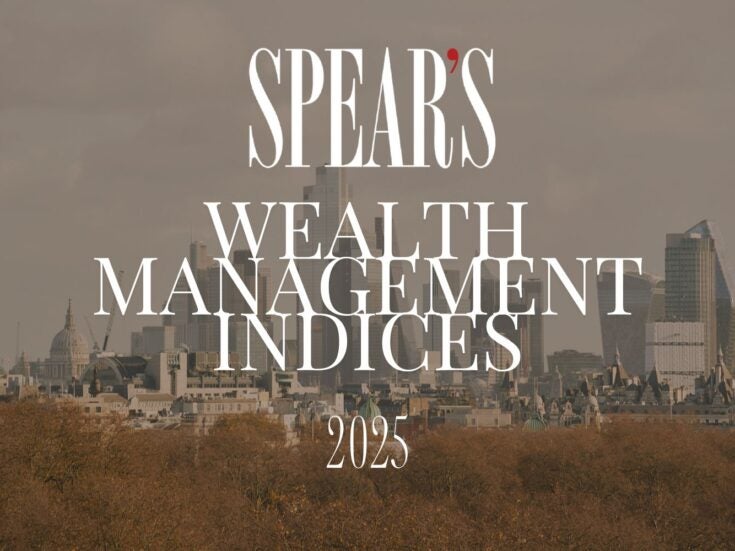
Don’t ignore the abbreviations — the impact of the RDR on HNWs and their IFAs is going to be seismic
WHEN AN INDEPENDENT financial adviser talks about seeking returns, too often they mean retrocessions for themselves rather than portfolio growth for clients. That is about to change. The Retail Distribution Review (RDR) promises to turn the average IFA — a 54-year-old man, educated financially to the level of an A-level student — into a university-standard client advocate. If Treasury minister Mark Hoban can get away with comparing current entry-level qualifications to ‘a diploma in shift management at McDonald’s’, then it’s clear that action of this kind is long overdue.
The time imperative is rooted in the fact that IFAs are a not insignificant part of the UK wealth market. 29,000 of them roam the UK implementing people’s financial plans. According to Mintel, they handle 27 per cent of HNWs’ wealth, compared with 21 per cent for private banks and wealth managers.
The trade faces a very real challenge, however, if it is to stay in business. From January 2013, not only must IFAs retrain to higher standards, but they must also recalibrate their models. The standard venture currently gleans the majority of its revenue from fund-provider kickbacks rather than client fees. But that is unacceptable, says the Financial Services Authority; it wants HNWs to be in control of what they pay, to whom and for what, so IFAs will have to turn their businesses upside down and move from transaction-based revenue models to fee-based ones.
‘The impact of the RDR will be the equivalent of Y2K for the global banking industry,’ says Andrew Whelan at Ermitage Global Wealth Management, ‘in that it forces the industry players to embrace change or become extinct.’
At an estimated £1.7 billion cost of implementation, the ramifications will be widespread. Elder IFAs, for example, will seriously consider retirement. After all, where’s the attraction for a 54-year-old in going back to school only to be remunerated by the amount of time they spend working for each client, rather than the portfolio size that they allocate to a fund provider?

That said, IFAs have been a tremendously tenacious bunch over the years. With no brand names, they account for 85 per cent of the distribution of financial products in the UK, according to risk.net.
The practitioners with the mettle to stay on will have tough decisions to make. First, they must work out whether they want to invest their clients’ assets themselves or outsource the mandate. The former requires a lot of preparation. You can’t just become an asset manager once you’ve got your certificates. You’ve got to hire specialists, write execution policies, identify trading platforms,
formalise discounts and structure fees. It’s a huge body of work. While it may take five minutes to explain, it takes at least a year to implement.
Those taking the jump would do well to look at the success stories out there. Take Investment Quorum: ten years ago it was an IFA with £12 million assets under influence. But having shifted to a discretionary in-house model under CEO Lee Robertson, it has gone from strength to strength, picking up refugees from the big houses, and growing AUM at £300,000–£700,000 every week.
The incentive for IFAs to follow their lead is strong. Outsourcing investment only pays 0.5 per cent per annum in trail commission, whereas in-house investment pays 1–1.25 per cent. There’s a big upfront cost, however, and they’ll have to carry the costs of research, execution and reporting going forward.

There are two ways to sidestep this: outsource investment or integrate into a wealth manager. For the industry stereotype, the latter is more attractive. On a personal level, it means that they will be given a once-in-a-lifetime opportunity to retrain on a salary. They’ll also get more backing with their systems, back office and research, and they’ll be able to exploit a recognised brand name to source new business. The only drawback is losing control of their business and sacrificing their tax advantages. ‘The pressure to consolidate is considerable,’ summarises John Barrass, deputy CEO of the Association of Private Client Investment Managers and Stockbrokers.
SO WHAT DOES the view look like from the wealth managers’ perspectives? According to Daniel Freedman at London & Capital, they are three options. First, buy IFAs lock, stock and barrel — a course favoured by Axa and Close Brothers, which are paying around four to five times annual revenue. Second, buy IFA assets under management — a strategy pursued by Rathbones and Brooks Macdonald, which are paying roughly three to four times annual revenue. Third, offer IFAs outsourced platforms — a tactic spearheaded by London & Capital (which runs ten risk-graded portfolios costing 0.25 per cent per annum). They believe that by allowing IFAs to retain control of their client relationships they will bring in over £1 billion in AUM this year alone.
As for the consequences for HNWs, will it be more than just a rebranding exercise, receiving reports on someone else’s headed paper? My guess is that it’ll be quite a shock. If your IFA is 60 years old, he’ll probably have handled your money for 35 years. To lose him will be like losing a friend.
But there are advantages. ‘In terms of service, investment performance and fees, the differences will be seismic,’ says Alan Miller at SCM Private.
For starters, service will improve. IFAs are more financial planners than investment managers and thus you’ll get a specialist managing your investments. Further, you’ll benefit from seeing 100 per cent of what you own online 24 hours a day, rather than simply receiving a monthly newsletter. Finally, you’ll gain the power of an institution in that all your securities will be held in your name rather than in a fund, thereby mitigating the risk of having your money frozen if your fellow investors want out. Investment performance will improve, too. Your portfolio will be invested in a disciplined, balanced and cost-effective way, rather than the IFA approach of recommending fashionable, concentrated and expensive funds. Additionally, your portfolio will be comprised of a wider set of assets, thus raising returns and lowering risk, as wealth managers are not incentivised to stick to commission-paying funds alone.
Fees will also improve. If you use a reputable wealth manager you’ll pay around 1 per cent, whereas IFAs charge 1.5–2 per cent (dependent on your risk profile). The reason for the discrepancy, according to Peter Thomson at Taylor Young, is that wealth managers buy cheap institutional units, whereas IFAs buy expensive retail units explicitly for the trail commission.
Ultimately, the RDR means increased accountability. Sure, it’s going to be torment for wealth advisers in the short run. But the point is the greater good. For the first time, HNWs will be able to see exactly what they’re paying for and, on the back of that, they’ll receive better service. On some levels the legislation may be too simplistic and may mean that at times they will occasionally be addressed in the same way as Auntie Flo in Leeds when buying her Isa. But the process has to start somewhere. Hats off to the FSA for taking the initiative.
Illustration by Femke de Jong







